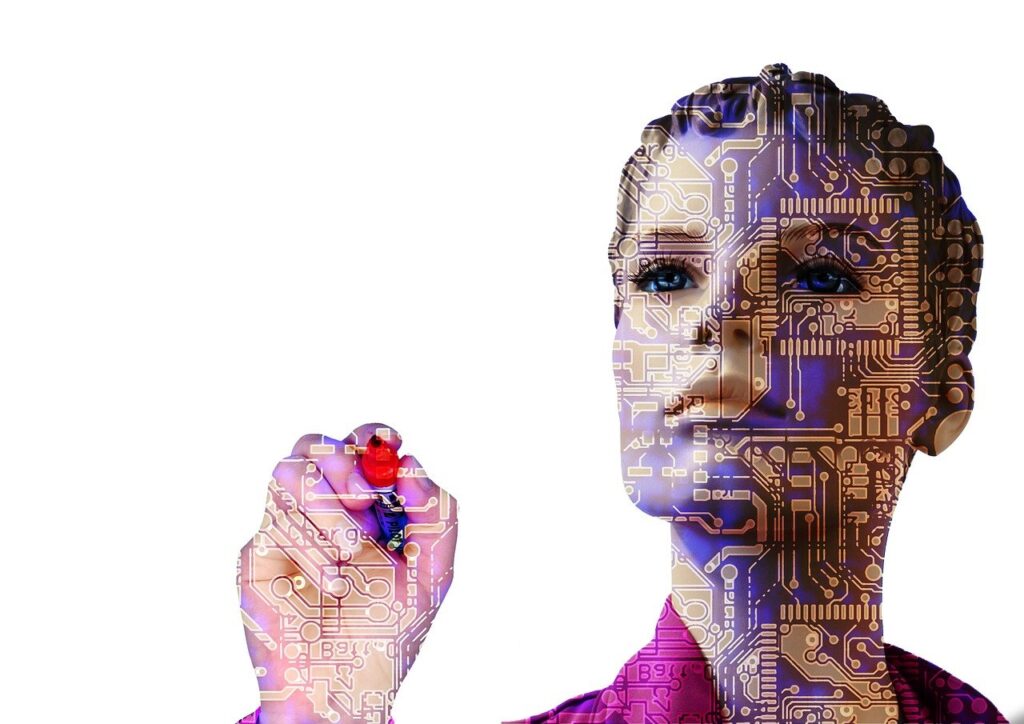Artificial intelligence or AI is a programed application or robot that has the intelligence to function alone. It is able to think on its own, solve problems, and run simulations. These acts are carried out because they are programmed to, however, in the near future, they might start evolving on their own and drastically change our lives. Since in this age we as humans heavily rely on computers and the internet, it is nearly impossible to think about living without them as they facilitate our lives. While we are still developing AI, it has the potential of gaining advancement especially in the future, and maybe surpassing human intelligence and hard work. It can even replace us since we have short lives, though our legacy would live through them, marking them as a man-made species.
Artificial intelligence has its advantages and disadvantages, like any other innovation. However, AI could control our fate in the future as it has the ability to change it for the better or worse. However, it is important to notice the advances humans have made with its help in the academic field, as it helps students check their errors, use their imagination, and create new ideas. It can also spot plagiarism to avoid cheating. Hence, it helps not only students but also professors. It is purely making our lives better, and it is safe to assume we are going to a better future. Moving on to other fields, in the medical world, it helps doctors with patient care, diagnosing problems, and helping with treatment. With computer engineers, it can assist them with their tasks, as they already work with codes and programming, and it can help spot mistakes within the code to avoid glitches inside the application, game, or website they are working on. Additionally, it can help mechanical engineers with their machines, as that is their primary task, it can build gears faster and more efficiently. All these examples show how it is much easier to better perform with them, but we also became really dependent on them for everyday tasks.

However, we cannot forget that artificial intelligence has no empathy, even though it is man-made. One of the disadvantages or problems that we would face with AI is that it carries out orders as listed with no emotion, which also means no compassion or regard for anything else. Although there is no proof of how AI will evolve in the future, one clear idea is that it will be hard to socialize with, as it won’t understand social cues, emotions, or how to be passive while interacting with others. Another problem, though it is more related to humans, is that the skills we as humans gathered for millions of years—everything that we learned from survival instincts to critical thinking and other activities—will be rendered useless because of the rise of AI. If they do everything for us, we will not be obliged to do anything, thus making us lazy and our bodies will shudder. We will be used to sitting around and waiting for AI to serve to our commands. Setting these speculations aside, one of the common problems that we would face with AI, especially in its early stages, is wrong inputs. This could potentially make AI give false information to people. If it has one wrong code in its programming, it will spread misinformation and provide sources that do not exist anymore. However, this can be avoided with extra caution and checking.
Nonetheless, AI can make a great addition to human history. Though it would be revolutionary because a new concept would have to be introduced to the public, it would immensely help us with our everyday tasks, especially at work, which would enhance productivity greatly. It is also important to emphasize that AI does not classify itself only as a smart machine, but it has different classifications depending on how AI is made. There are three types of AI: the first kind is the narrow AI, which is the weakest and the one we use in our computers like ChatGPT, Siri, Quillbot, the weather app, and many others that we use now. They would be able to solve problems, albeit just one at a time, really well. In short, they have narrow abilities, which is why they are specified as the narrow Ai. Next, there is the general AI, which is still theoretical as it is defined as an AI that has the same level of reasoning and social skills as humans. While AI has come really far in the last century, we are still not able to make something as complex as a general AI, it is more of a task for future generations to make. Finally, the third one is the super AI, which is something that surpasses humans in everything, including thinking and reasoning, empathy, building meaningful relationships, being more efficient at work, and understanding art and being able to make better art than humans. This, of course, is not something that we would be able to make in the near future; the idea itself seems like a science fiction concept, but it is one of the possible evolution of AI.
All things considered, the rise of AI is still far from existing, as we are in the first stages of its creation. Even though it has its disadvantages, we are more likely to avoid them and steer AI in the right direction. Plus, its advantages outweigh the disadvantages, as we would be able to make anything faster and work more efficiently; however, general AIs would be the most beneficial ones to us as they have the power to reshape society and multiple industries. AI would be considered a sign that humans evolved in their thinking capabilities and progressed as a society. Even though we should be wary of the downsides, which we can avoid with the right precautions.